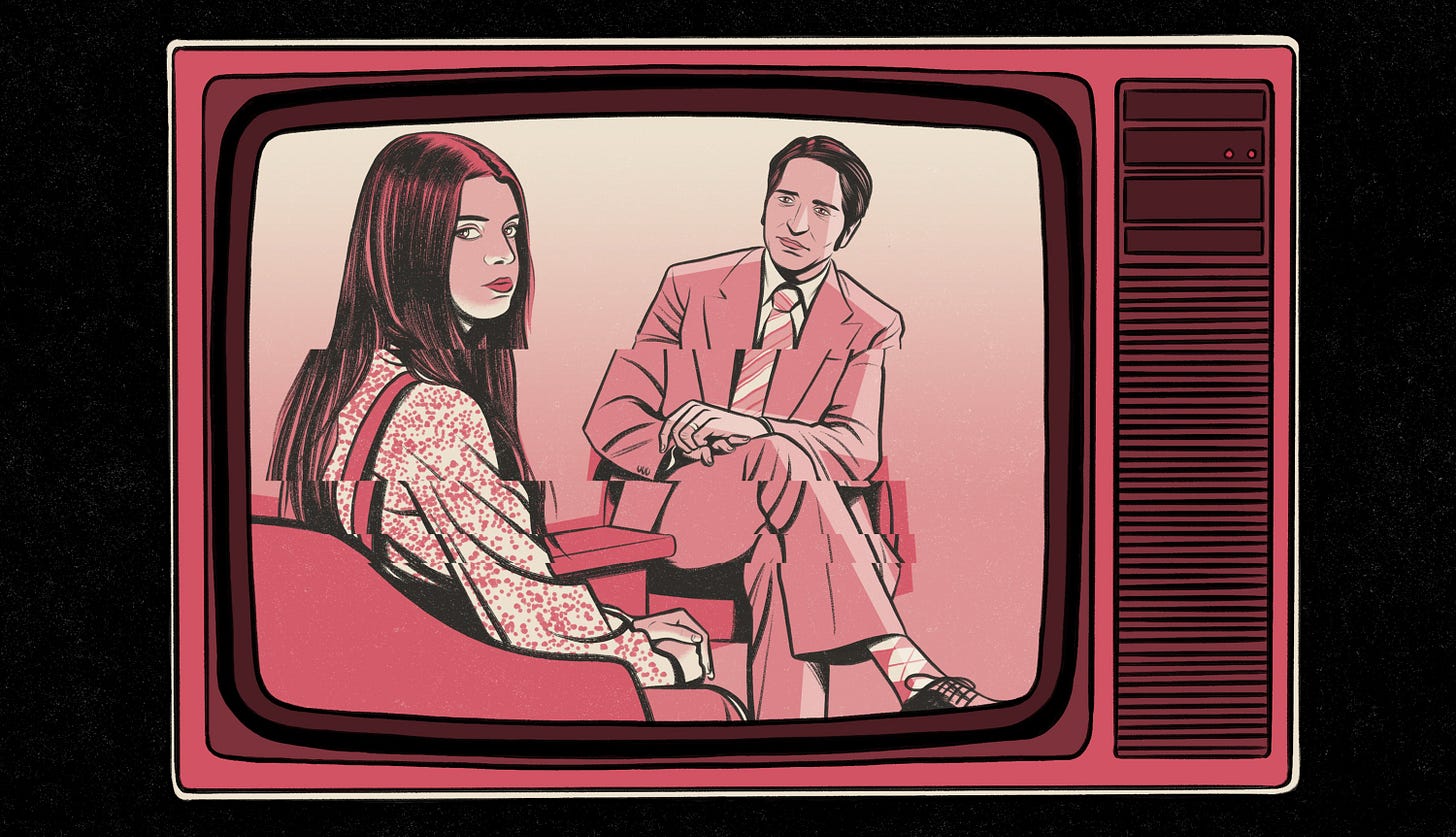
You might not know the name “David Dastmalchian” off the top of your head, but you’ll recognise his face.
He’s the giggling henchman in The Dark Knight. The twitching, would-be child kidnapper in Prisoners. The morose superhero whose skin erupts in a glowing polka-dot rash in The Sucide Squad. He is the trembling patient at the start of The Boogeyman. More often than not, he is the scene-stealer in films full of memorable scenes. His domain is the quiet before the shitstorm.
There is an unblinking, angsty strangeness to all of Dastmalchian’s performances that make him notable. He’s That Guy. But in Late Night with the Devil, he finally graduates into his first leading role. Here, he plays Jack Delroy, host of the fictional Night Owls (would watch), a popular late-night show that’s perennially second to Johnny Carson. Faced with dwindling ratings, Delroy and his producer set up an interview with an (allegedly) possessed girl, hoping it’ll boost ratings and save them all from cancellation (or damnation). A cracker of a premise for a hybrid found footage film that uses the form not as a budget-friendly structural solution but as a key part of the storytelling.
Whatever gripes I have with the film – the use of AI-generated imagery, the exposition dump via montage – are minimal in comparison to the glee of seeing what Dastmalchian can do when he’s given a bigger playground. Late Night with the Devil is a fittingly surreal affair where his character is tasked to exist between personality and personhood. The figure of the late night host has to be all things and nothing, all at once. Friendly and convivial but with an edge. Inviting, but never cloying. Goofy, but not stupid. The host lives and dies on fabricating the illusion of being friend to all, yet remaining a radically neutral figure, never playing favourites. Dastmalchian is that rare breed of character actor that is recognisable without needing to be a peacock, and he imbues Jack Delroy with that same ability.
Late Night with the Devil’s clever conceit blends the promise of live spectacle and the supernatural. Everyone on Night Owls is a character of extremes, near-caricatures of the recurring figures of the Satanic Panic. Outside of Dastmalchian, the rest of the cast are tasked with operating on a hammier level, fully embedded in the dual hyperrealities of a bygone era of live TV and horror filmmaking. There’s the unfunny sidedick Gus (Rhys Auteri), the aggressively skeptical hypnotist Carmichael the Conjurer (Ian Bliss), the ludicrous medium Christou (Fayssal Bazzi) and, as the Night Owl pièce de résistance, the parapsychologist and her demonically possessed patient Lilly (Ingrid Torelli). Everyone is game, and the game is horror camp.
Even surrounded by all this excess (Psychics! Hypnotism! Worms! Sexual tension! The Devil!), Dastmalchian never breaks away from the late night host’s unnatural neutrality. The film abandons the found footage device on occasion, giving us a glimpse of behind-the-scenes shenanigans, and although in these moments the film betrays its own internal logic, it’s also where Dastmalchian’s craft is most evident. His voice shifts, losing its authoritative tone and measured pauses. In black-and-white, Delroy is not an ambitious TV star but a man grief-stricken and dismayed at how these unexplainable occurrences are reviving memories of his recently-deceased wife. In these moments, Delroy is shifting between being a Person and being Number One, whether it’s possible to be both. Dastmalchian has always made the most out of small moments, and in Late Night with the Devil, he does it again.





I've got a review of Late Night with the Devil up on my page too, but I love your focus on David Dastmalchian, he's truly one of the best